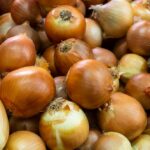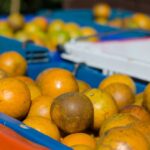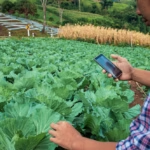Family farming plays a crucial role in the agricultural landscape of South Africa. It not only contributes to food security but also fosters community resilience, economic sustainability, and social cohesion. Involving every family member in farming activities can enhance productivity, promote knowledge sharing, and strengthen family bonds. Here’s how South African farmers can effectively involve everyone in family farming.
1. Understanding Family Farming
Family farming is defined as a farming system where family members make the majority of decisions and work together to manage the farm. This approach can include a variety of agricultural activities, from crop cultivation to livestock rearing, and is characterized by the use of family labor and resources.
2. Engaging All Family Members
To maximize the benefits of family farming, it’s essential to engage all family members actively. Here are some strategies:
- Identify Strengths and Interests: Recognize the unique skills and interests of each family member. Younger members may be more adept at using technology, while older generations may possess valuable traditional farming knowledge.
- Assign Roles and Responsibilities: Clearly define roles for each family member based on their strengths. For instance, children can assist with simple tasks like planting or harvesting, while adults can focus on more complex responsibilities like financial management and marketing.
- Encourage Learning and Skill Development: Create opportunities for family members to learn new skills. This could include attending workshops, enrolling in agricultural courses, or participating in community farming groups. Skills in sustainable practices, pest management, or crop rotation can be particularly beneficial.
3. Fostering Communication and Collaboration
Effective communication is key to a successful family farming operation. Here’s how to foster collaboration:
- Regular Family Meetings: Hold regular discussions to plan activities, share ideas, and address challenges. These meetings can help everyone stay informed and engaged in the decision-making process.
- Collaborative Problem Solving: Encourage family members to work together to solve problems. This collaborative approach can lead to innovative solutions and strengthen family ties.
4. Promoting Sustainable Practices
Involving everyone in family farming also means embracing sustainable agricultural practices. This can be achieved by:
- Educating Family Members on Sustainability: Teach the family about the importance of sustainable practices, such as crop rotation, organic farming, and water conservation. When everyone understands the benefits, they are more likely to adopt these practices.
- Implementing Eco-Friendly Techniques: Encourage all family members to participate in implementing eco-friendly farming techniques. This can include composting, using natural pest control methods, and reducing chemical inputs.
5. Utilizing Technology
Technology can enhance family farming practices, making it easier for all members to participate:
- Adopting Digital Tools: Utilize mobile apps and online resources for farm management, weather forecasts, and market information. This can help family members stay updated and make informed decisions.
- Encouraging Youth Engagement with Technology: Involve younger family members in using technology for farming. This not only helps with farm management but also prepares them for the future of agriculture.
6. Building Community Connections
Family farming doesn’t exist in isolation. Building connections with the broader community can provide additional support and resources:
- Join Local Farming Cooperatives: Engage with local farming groups or cooperatives to share resources, knowledge, and market access. This fosters a sense of community and can enhance the overall farming experience.
- Participate in Farmers’ Markets: Encourage family members to get involved in selling produce at local markets. This not only generates income but also helps build connections with consumers and other farmers.
Family farming is a vital component of South Africa’s agricultural sector, and involving everyone in the process can lead to greater success and sustainability. By engaging all family members, fostering collaboration, promoting sustainable practices, utilizing technology, and building community connections, South African farmers can create a thriving family farming operation that benefits not only their families but also the broader community. Embracing this inclusive approach ensures a more resilient and productive agricultural future.







